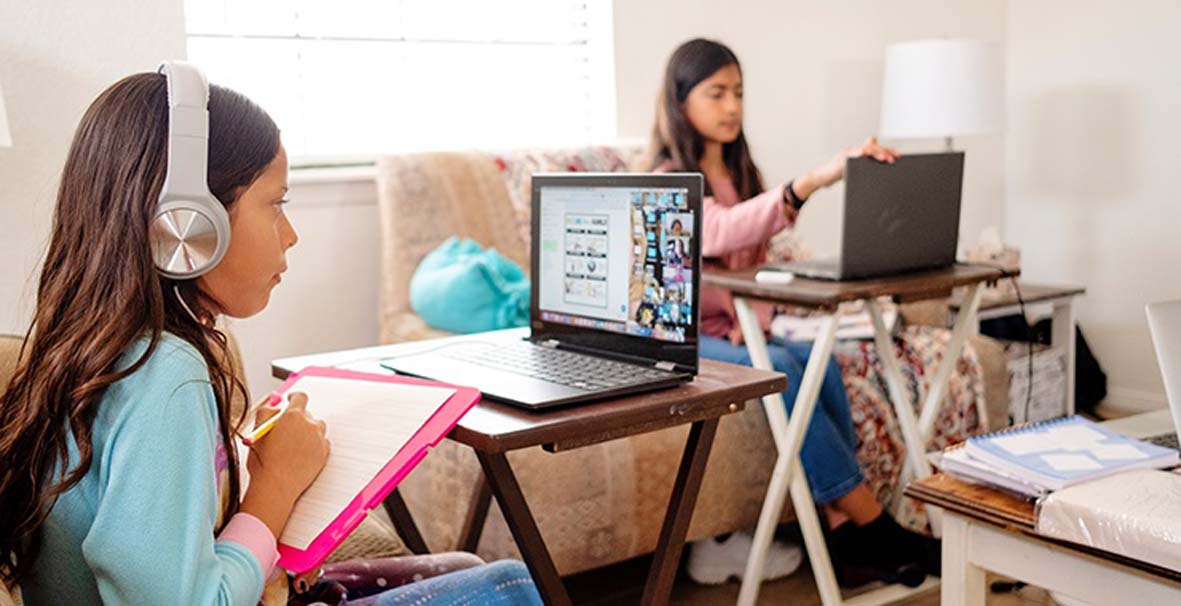Dr Pinky Pargal
Almost all of us have grown hearing to and agreeing to the famous quotes: “The cheerful mind perseveres, and the strong mind hews its way through a thousand difficulties.” – Swami Vivekananda
“When wealth is lost, nothing is lost; when health is lost, something is lost; when character is lost, all is lost.” Billy Graham
But somehow, things do not seem to be in line with these quotes at this moment. The world is witnessing a pandemic that has posed a threat to human life and changed the economic, social, and political dimensions. India has also been greatly affected by the Covid pandemic. All the institutions including our health institutions, educational institutions, and business institutions have adapted /still adapting to the new norm of the day. We can see the sudden upsurge of telemedicine, online shopping, and most importantly online education. When Swami Vivekananda said “cheerful mind” or when Billy Graham said “when health is lost something is lost” they were pointing towards holistic health which includes not only the obvious physical factors, but mental, emotional, social, and even spiritual factors as well. Now let’s come to online education. One of the most oft-used terms in the pandemic is the term “new normal.” The new normal in education is the increased use of online learning tools.
The COVID-19 pandemic has triggered new ways of learning. All around the world, educational institutions are looking toward online learning platforms to continue with the process of educating students. Online learning is now applicable not just to learn academics but also to learning extracurricular activities for students. In recent months, the demand for online learning has risen significantly, and it will continue doing so in the future because of efficiency, accessibility of time and place, affordability, improved student attendance, suits a variety of learning styles. Being constantly online is a new reality, but the truth is that using a computer or a tablet all the time can cause poor vision, strain injuries, and other physical problems.
Suggestions to curb major health issues due to online education : Headaches – Headaches are becoming quite common in kids these days. This is mainly due to the fatigue /discomfort due to excess use of gadgets. Try to adjust the brightness to an optimum level. Neck, Shoulder, and Back Pain – Spending long hours at a desk typing or holding a phone and looking down, places strain on the neck, shoulders, and back which can cause severe musculoskeletal issues. Guide your kids to take regular breaks and do some stretching exercises in between.
Reduced Physical Activity Levels – A sedentary lifestyle is a natural offshoot of increased time spent in the digital world, directly linked to an increased risk of obesity and other physical health problems. Encourage your kids to play outdoor /indoor sports or do some gardening. Asking them to set their almirah daily can be of great help!
Insomnia – Excessive use of gadgets can lead to insomnia and poor sleep. So, please ensure that kids avoid exposure to screen light at least three hours before going to bed.
Addictive Behaviours – It has been observed that in the garb of online education, children often get engaged in social media which can be addictive and dangerous for their mental growth. Keep a close watch on them.
Stress- Stress among young kids can be easily judged from the increasing number of kids reporting to psychiatrists for consultation. On days, when school online classes are off, ensure your kids take a complete off from the screen. Many parents have already started showing concern about the health hazards of having their children spend so many hours staring at a screen. This increase in screen time is one of the biggest concerns and disadvantages of online learning. We also need to explore the possibility of using radio broadcasting as a tool for online education. We are already witnessing the unprecedented success of Mann Ki Baat of PM in which radio broadcasting has been very effectively used to reach the remotest corners of the country. Radios can be easily accessible, even through a regular mobile phone. Auditory learners take in information through listening and speaking. To fully comprehend certain details, these learners prefer to hear instructions and, sometimes, verbally repeat them. Broadcasting academic content through radio channels can be a cost-effective method of teaching students.
Timings should be communicated in advance so that none of the students misses out on lessons. Students can also be guided to look for recordings of daily classes. Listening to the recording later can help them to absorb the information. Awareness also needs to spread among children to use text-to-speech software that will allow them to listen to notes. Lastly, there has been a mushroom growth of online courses for kids during the pandemic period. Though it is a good business opportunity for many but not without the disadvantage of increasing screen time. Students are increasingly getting attracted toward joining these courses in the excitement of getting participation certificates which they can later show in their online school classes just to impress teachers. Moreover, the efficacy and authenticity of such courses are debatable. The government must come out with a policy regarding such courses at least for students in the age group of 6-14 years. These courses need to be certified by some Nodal Government Agency before becoming available to the students of the defined age group. However, till the time pandemic is over, let us all pledge to take collective responsibility and guide our young generations to minimize the screen time as far as possible. Every kid has the potential to contribute in the growth and glory of the nation in coming times as the famous couplet goes :Ek Accha Vidyarthi Ghar Mei Ho Ya Samaaj Mein, Uska Protsahan Zarur Kijiye “Dosto”. Khoobsurat Phool Kisi Bhi Bagh Mei Kyu Na Ho, Khushboo Sab Ko Deta Hai.
(The author is a Professor in Plastic Surgery DMC Ludhiana)


